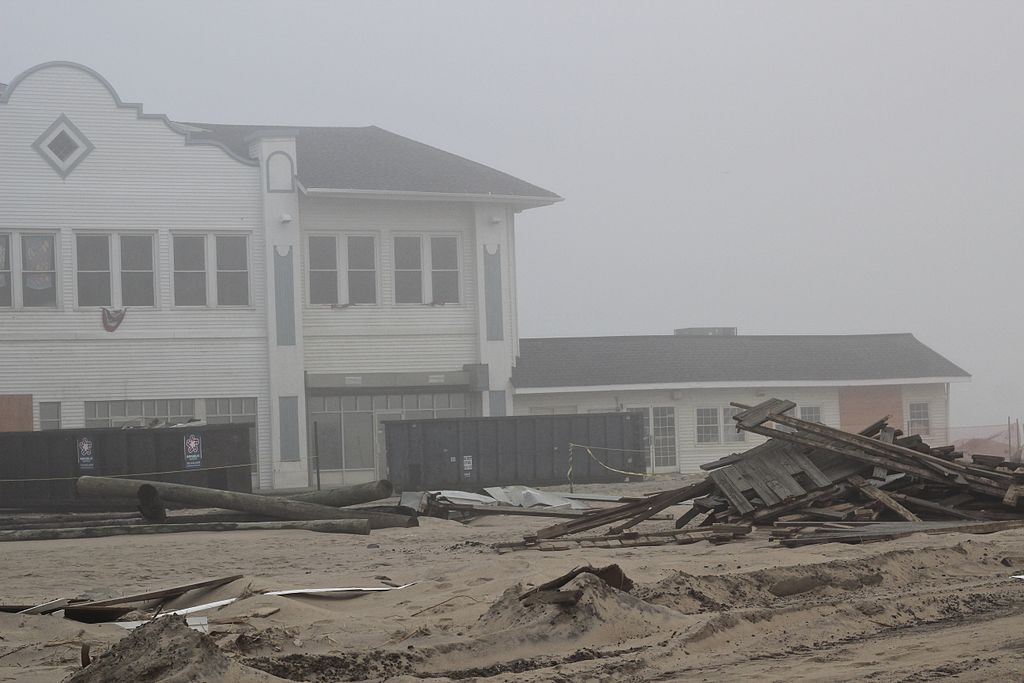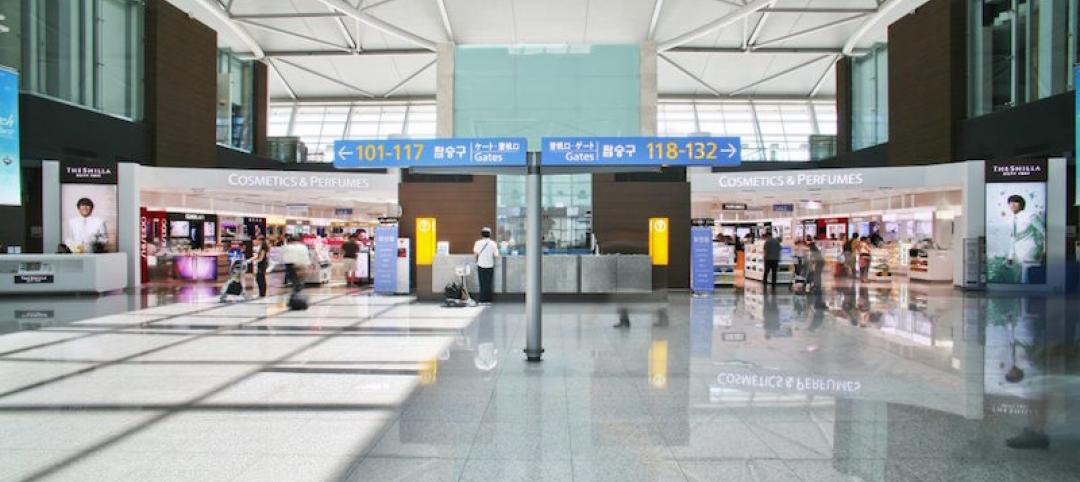Leaders of America’s design and construction industry – along with building owners and operators - for the first time have agreed to promote resilience in contemporary planning, building materials, design, construction and operational techniques as the solution to making the nation’s aging infrastructure more safe and secure.
CEOs of almost two-dozen leading design and construction industry associations with more than 700,000 members generating almost $1 trillion in GDP today used the occasion of “Building Safety Month” to issue a joint statement on resilience, which can be found here.
The statement was unveiled at a press conference at the National Building Museum, where a major exhibition titled Designing for Disaster presents design and building solutions for disaster mitigation, opened May 11.
“We recognize that natural and manmade hazards pose an increasing threat to the safety of the public and the vitality of our nation,” reads the statement, in part. “We further recognize that contemporary planning, building materials, design, construction and operational techniques can make our communities more resilient to these threats.”
The CEOs committed their design and construction sector organizations to significantly improve the resilience of the nation’s entire built environment through research into new materials, construction procedures and other methods to improve the standard of practice.
Among other things, they also committed the industry to educating itself through continuous learning; to advocating for effective land use policies; to responding to disasters alongside first responders; and to planning for future events, with a strategy for fast recovery.
“Resilient design places architects at the center of the solution, with particular emphasis on the private, non-governmental sectors," said American Institute of Architects CEO Robert Ivy, FAIA. “I would like to congratulate my fellow leaders in the design and construction sector for joining together to make sure resiliency is not viewed as just a fad but remains front and center in our efforts moving forward.”
In addition to the AIA, here is a list of organizations signing onto the joint statement on resilience:
American Council of Engineering Companies
American Planning Association
American Society of Civil Engineers
American Society of Interior Designers
American Society of Landscape Architects
American Society of Plumbing Engineers
ASHRAE
Associated Builders and Contractors
Associated General Contractors of America
Building Owners and Managers Association
International Code Council
International Interior Design Association
Lean Construction Institute
National Association of Home Builders
National Institute of Building Sciences International Facility Management Association
National Society of Professional Engineers
Royal Institute of Chartered Surveyors
Urban Land Institute
U.S. Green Building Council
About The American Institute of Architects
Founded in 1857, members of the American Institute of Architects consistently work to create more valuable, healthy, secure, and sustainable buildings, neighborhoods, and communities. Through nearly 300 state and local chapters, the AIA advocates for public policies that promote economic vitality and public wellbeing.
Members adhere to a code of ethics and conduct to ensure the highest professional standards. The AIA provides members with tools and resources to assist them in their careers and business as well as engaging civic and government leaders, and the public to find solutions to pressing issues facing our communities, institutions, nation and world. Visit www.aia.org.
Related Stories
Giants 400 | Oct 3, 2017
Top 30 airport engineering firms
AECOM, Burns & McDonnell, and Arup top BD+C’s ranking of the nation’s largest airport sector engineering and EA firms, as reported in the 2017 Giants 300 Report.
Airports | Sep 11, 2017
Terminal modernization: Why bother? Part I
A terminal modernization program can be a complicated and expensive task that airport operators may be hesitant to undertake unless necessitated by demands for increased capacity. This is the first post in our series examining why airport operators should bother to upgrade their facilities, even if capacity isn’t forcing the issue.
Hotel Facilities | Jul 5, 2017
It only took 26 days to complete construction on the Crowne Plaza Changi Airport hotel extension
PPVC techniques allowed the project to save time and manpower.
Airports | Jun 26, 2017
Newark Liberty International Airport breaks ground on $2.4 billion redevelopment project
The project includes a new 1 million-sf terminal building with 33 domestic aircraft gates.
Building Team Awards | Jun 8, 2017
Missing link: Denver International Airport and Transit Center
Gold Award: A new mixed-use transit center fulfills Denver’s 28-year plan to improve access to the nation’s fifth-busiest airport.
Airports | May 15, 2017
Five trends for airport retail
CallisonRTKL Vice President Kevin Horn pinpoints how travel retail is changing dramatically.
Reconstruction & Renovation | Mar 16, 2017
Pols are ready to spend $1T on rebuilding America’s infrastructure. But who will pick which projects benefit?
The accounting and consulting firm PwC offers the industrial sector a five-step approach to getting more involved in this process.
Airports | Feb 23, 2017
New Orleans Airport to add five additional gates and $110 million to current expansion
The project is being hailed as the city’s most transformative since the construction of the Superdome.
Projects | Jan 25, 2017
Trump prioritizes infrastructure projects, as rebuilding America is now a hot political potato
Both parties are talking about $1 trillion in spending over the next decade. How projects will be funded, though, remains unresolved.
Airports | Jan 17, 2017
JFK Airport set for $10 billion renovation
In addition to the airport itself, the overhaul will also improve road and rail access to meet projected passenger growth.

















